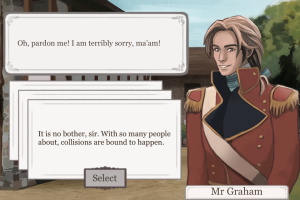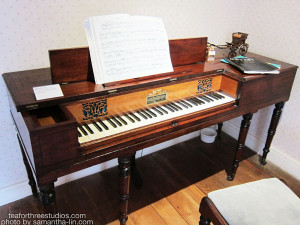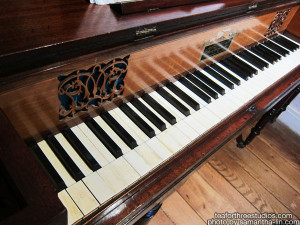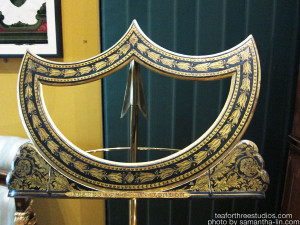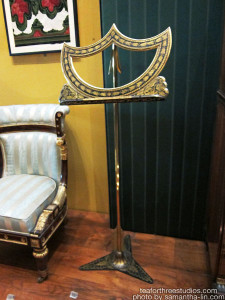It’s Samantha again, sending you a very cheerful Friday greeting from a somewhat spring-like Belfast! This Friday is particularly awesome because it means there are only two more weeks to go before the (long-awaited) update will be released and available on the app store—and, to add to this month-long pre-release celebration, it is on this wonderful Friday that I’ll be revealing the identity of our latest bachelor! In order to do so, let’s start from the very beginning…
Once upon a time, when we first entered Darlington and the world of Regency Love, we walked into town to post a letter Mama had written to an aunt who lives elsewhere (which, by the way, is supposed to lead into another plot we may develop in the future). As you leave, you accidentally bump into a gentleman in his unmistakable red coat:
We meet Mr Graham again at a handful of social gatherings, but before we can learn more about him, we discover the regiment to which he belongs will soon be on the move. Alas, it seems Mr Graham may remain an enigma after all…
Except that we at Tea For Three Studios now implore you to suspend your disbelief a little, and ignore any issues of continuity. Instead of the regiment taking their leave so soon, they will remain in Darlington for a while longer—during which we will have the opportunity to spend some more time with our favourite red coat.
Mr Graham was actually one of the three original gentlemen we wanted to introduce in Regency Love, but as we approached our initial release date back in 16 December 2013, it became quite evident we needed to tweak our plans a little and postpone his plot—after all, we wanted to tell his story thoroughly and well, and rushing would’ve been a disservice. Now, as we’re putting together all the material for Mr Graham and going through the full scope of his story, we’re all glad about our decision. In fact, even though Mr Graham started out as Jenny’s man (we each claimed a gentleman to champion), he’s been weaving himself into the hearts of Melody and myself (which, on my part, is a little unsettling, seeing as I’d much rather the saturnine Mr Curtis—I guess I’ve finally softened to the ladies’ constant badgering for me to write less angst!). And of course, along with Mr Graham, we’ll also be introducing some of his good friends, and they, of course, come with their own stories. I also feel a little disclaimer is in order: although Mr Graham’s story has been inspired by certain historical events, what we’ve come up with is by no means an accurate depiction of the British Army during the Napoleonic Wars. When Mr Graham and his battalion visit Darlington, they are presumably on garrison duty to protect the town from the threat of a potential French invasion. Beyond that, however, we once again appeal to your imagination and your forgiving hearts where discrepancies are concerned.
But most of all, we’re all just very, very excited about sharing Mr Graham and his friends with you. I know we’re starting to sound like a broken record, but that doesn’t make our overwhelming excitement and anticipation any less true! And if you’re equally excited (or are just pleased to have guessed correctly the identity of our new bachelor—I’ve been privy to your online speculations over the past few months, and applaud your good judgement), then please do drop us a line and let us know!
